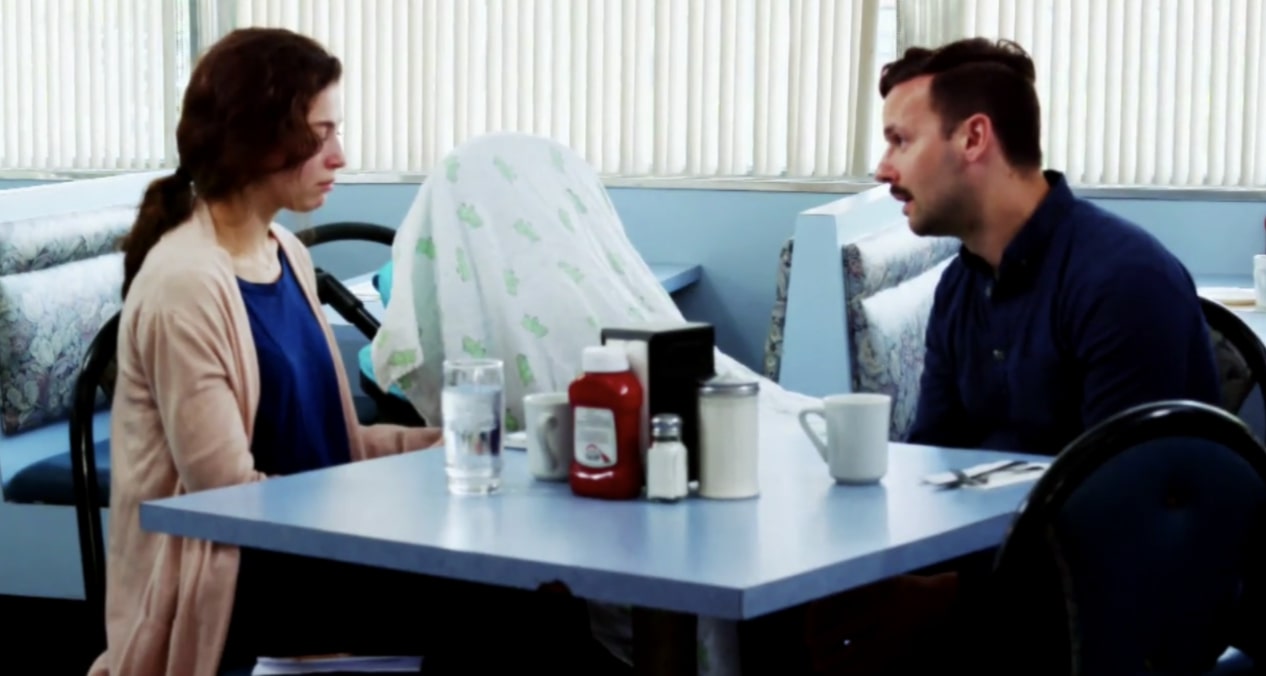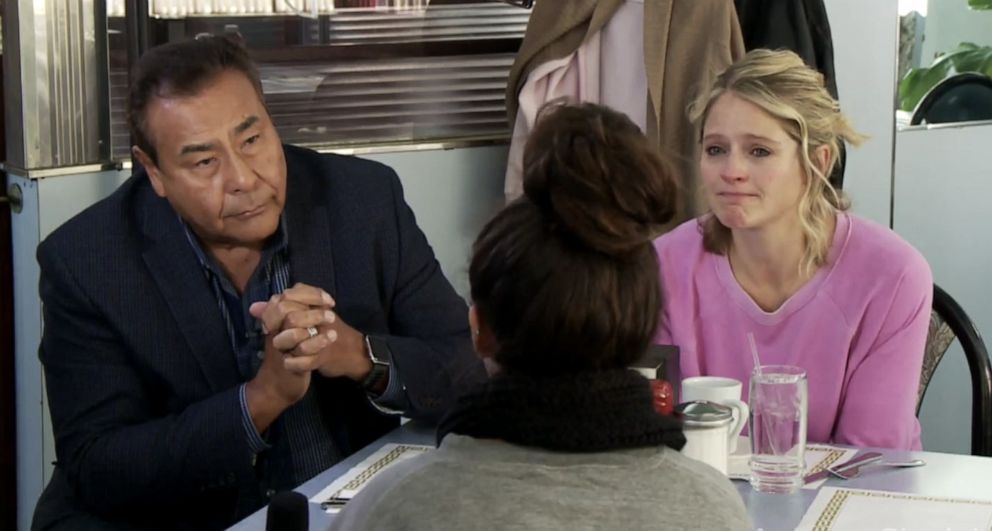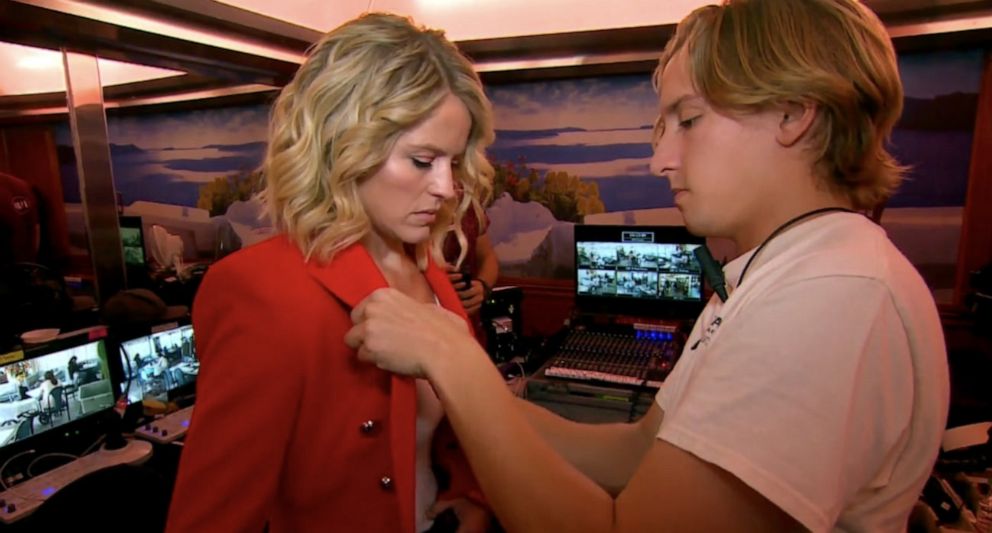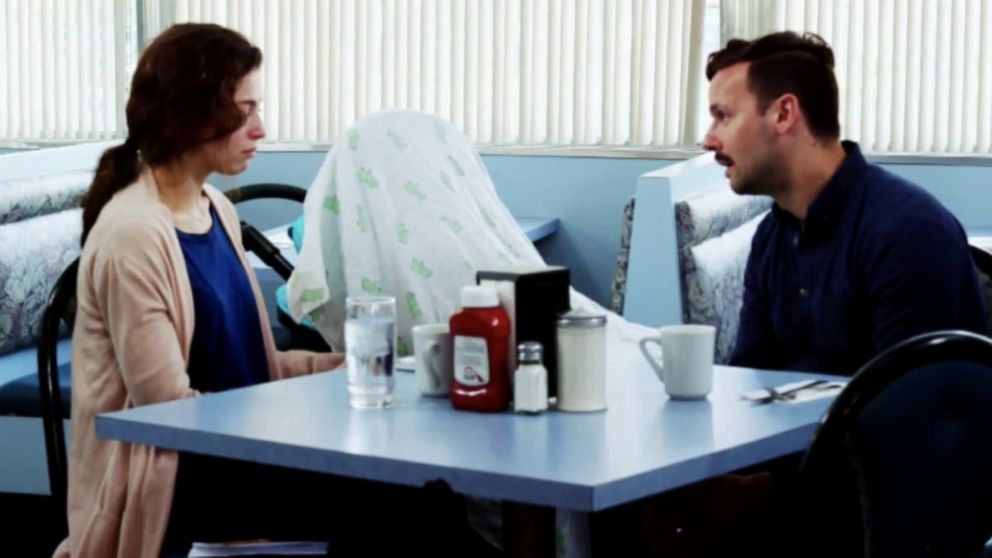A new mom with postpartum depression: 'What Would You Do?'
In tonight’s episode of “What Would You Do?” we witness people reacting to a brand new mother whose friend brushes off her depression and anxiety symptoms as “nothing serious.”
ABC News’ Sara Haines stopped by the set to share her own experiences after the birth of her son.
“I felt like I had gotten into something I couldn’t get out of. I was so anxious,” she said as she began to tear up. “I felt like he’d be better off with someone else.”
Perinatal mood disorders include depression and anxiety and can begin during pregnancy (prenatal) or after the baby is born (postapartum).
The American Psychological Associationreports postpartum depression affects one in seven women and that dads can experience it as well. While it doesn’t feel the same for everyone, common symptoms include excessive crying, anger, withdrawing from loved ones, feeling overly anxious, thinking about hurting oneself or the baby and doubting your ability to care of your baby, according to the Centers for Disease Control and Prevention (CDC).
Tune in to “What Would You Do” Tuesdays at 10/9c on ABC.
In the scene, which was recorded before the pandemic, a new mom played by our actor Ariane Rinehart, opens up to her friend, played by actor Kaira Klueber. Rinehart started crying and said, “I can’t help but thinking that, that she would be better without me.”
Klueber’s reaction seemed to suggest she doesn’t understand the severity of what Rinehart is telling her and assured Rinehart she’ll be back to normal after “a good cry.”

Customers at the Miss America Diner in Jersey City, New Jersey, heard our new mom struggling, and many took it upon themselves to help by consoling Rinehart, suggesting she reach out to her doctor or a therapist and even offering hugs. One diner rushes over to embrace Rinehart and let her know she’s experiencing something millions of mothers go through.
“Google it”, the woman says about postpartum depression, insisting she’s not alone.
We played out the scenario a few more times, switching out Klueber for James Manzello, who plays Rinehart’s husband. Manzello doesn’t understand that his wife may need professional help, telling her, “You gotta snap out of this because there’s really no reason to be sad.”
Unfortunately, for many new moms and dads, there is no quick fix -- a fact another customer seemed to know. The customer waited for Manzello to step away before approaching Rinehart and whispering, “It’s not you, it’s postpartum depression.”
The customer even gave Rinehart a piece of paper with her phone number, saying, “You call me later and I can get you in touch with somebody that’ll help.”
In tonight’s episode, Haines reveals that her postpartum experience lasted about a year and that it was her husband who encouraged her to seek out a therapist.

“Talk therapy helped a lot,” Haines said.
Most people get better with treatment, according to the CDC.
After spending time behind the scenes, Haines did a quick wardrobe change and stepped into the scene as our new mom, a role she says she was made for. Klueber, again playing the friend, said, “I feel like maybe you just need, like, a bubble bath and, like, a big glass of wine.”
Becoming more emotional, Haines responded, “I just feel bad that he got me as a mom. I feel really overwhelmed.”
When Klueber stepped away, a stranger who also happened to be a psychology student, stepped in to be the friend Haines needed.
“I don't want you to think, like, that I was eavesdropping but, like, everything that she was saying is insane to me,” the student says.

The student then sat down at Haines’ table, offering her validation for her feelings.
“Postpartum depression is a thing that women deal with all the time, you know, and, like, that doesn’t mean that you don’t love your baby and that looking at your baby’s face is enough to make you happy. Like, being a mom is hard,” the student said. After the scene, our host John Quiñones asked the young student, “What did you want her to know?”
“When she said she felt so alone, like, I know that feeling, and, like, no one should feel like that,” the student said.
Haines emphasized that we all have it in us to make a difference during what may be a tough time for new parents.
“It’s the power of just one human to say, ‘I see you,’ and validate the struggle,” she said.
If you or someone you know is struggling with a perinatal mood disorder, seek treatment from your health care provider as soon as possible. For immediate assistance, you can call the National Alliance on Mental Health helpline 800-950-6264 or text “NAMI” to #741741.




